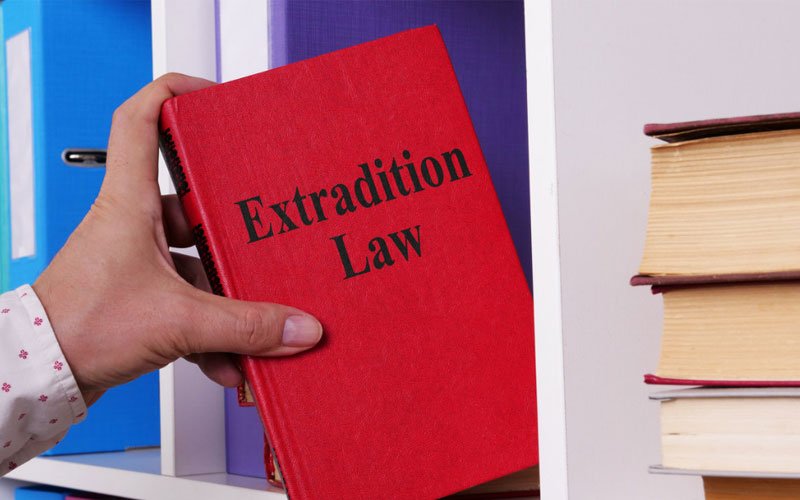Rooted in international treaties and domestic legislation, Canada’s extradition laws play a pivotal role: they address transnational crimes and ensure cooperation with other countries on matters of criminal justice– indeed, outlining the procedures and principles that govern surrender to foreign jurisdictions forms an integral aspect of our nation’s legal landscape.
Treaties and Bilateral Agreements
Canada has established Treaties and bilateral agreements with various nations that form the foundation of its extradition laws. These accords supply a legal basis for extradition requests by outlining qualifying offences, procedures to follow, and conditions under which Canada can hand over an individual to another country. The framework guarantees a fair process where transparency is paramount in conducting extraditions within sound legality.
The Extradition Act
Canada’s Extradition Act, as the principal legislation, governs the extradition process. This statute—comprehensive in nature—delineates: legal procedures; requirements and safeguards involved in responding to extradition requests. It also elucidates factors considered for determining if an offence warrants extradition – notably establishing principles such as dual criminality, speciality (a principle that restricts the prosecuting state from charging an extradited individual with crimes unrelated to those specified during their surrender) and protection of human rights throughout this procedure.
The Role of the Minister of Justice
Unlike certain jurisdictions where the judiciary wields final decision-making power, the Minister of Justice in Canada actively issues an extradition order; this highlights a distinctive feature of Canada’s extradition process. The exercise of such discretionary authority comes after meticulous consideration for legalities–diplomatic and human rights aspects included, hence serving as a safeguard against possible abuses within the overall procedure involved with extraditions.
Dual Criminality Principle
The principle of dual criminality, which stipulates that the alleged offence must be deemed a crime in both Canada and the requesting country, is pivotal to the extradition process. This principle safeguards individuals from facing extradition for actions not acknowledged as criminal within Canadian law. Unravelling the intricacies of dual criminality typically necessitates elaborate legal analysis; it demands meticulous scrutiny of each involved country’s legal system.
The Role of Legal Counsel
The guidance of legal counsel significantly benefits individuals who face extradition proceedings. A skilled, experienced extradition lawyer—by navigating the process’s complexities, challenging requests on legal grounds and advocating for the protection of accused rights—is instrumental in ensuring fair treatment throughout these cases. Particularly when serious offenses like sexual assault are alleged: it becomes crucial to enlist the expertise of a specialized sexual assault lawyer Toronto for ensuring robust defense strategy during all stages of an extradition proceeding.
Human Rights Considerations
The Canadian extradition proceedings place an emphatic priority on safeguarding the accused’s human rights. The Extradition Act integrates specific measures–a bulwark against extraditions when there exists a potential for persecution, torture or inhumane treatment. This consideration receives meticulous evaluation from the Minister of Justice; he ensures not only fair treatment of individuals facing extradition but also utmost respect for their fundamental rights.
Challenges and Controversies
Recently, high-profile extradition cases in Canada have incited debates and controversies: they’ve illuminated the intricate challenges embedded within our system. Notable instances – those entangled with diplomatic tensions or accusations of political motivations – highlight a fragile equilibrium between international cooperation; specifically, protecting individual rights is at stake. Such examples instigate continual dialogue concerning prospective reforms and enhancements to the extradition process.
Ongoing International Cooperation
The evolving landscape of transnational crime propels Canada to adapt its extradition laws continually. Ongoing dialogue and adjustments with other countries, technological advancements, and shifts in the nature of criminal offences are necessary to maintain an effective extradition tool that upholds the pursuit of justice while respecting fairness principles and human rights.
Canada’s extradition laws play a vital role in facilitating international cooperation in criminal matters. This framework, rooted profoundly in treaties and legislation while considering human rights aims to strike an intricate balance; it balances justice with diplomatic relations and individual rights. Individuals facing extradition can navigate the process’s complexities to ensure a fair and lawful resolution; legal counsel provides essential guidance for this purpose. Extradition laws continuously evolve, a testament to the international stage’s unwavering commitment to uphold justice principles.
Please Visit Our Website for more Law related articles like this.
















